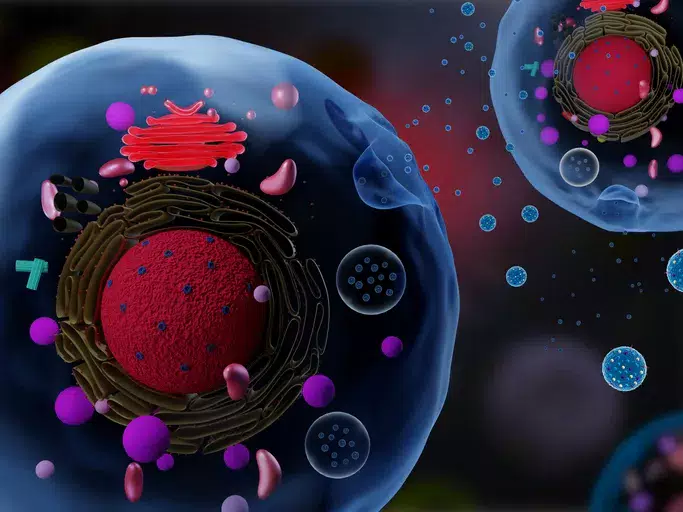Researchers at Karolinska Institutet in Sweden have made significant strides in the fight against cancer by using the body’s natural cell communication system to deliver targeted treatment.
The study, published in Nature Biomedical Engineering, showcases the potential of extracellular vesicles, tiny membrane bubbles that cells use to send signaling molecules, as a novel drug delivery method. By loading these bubbles with chemotherapeutic drugs and attaching tumor-targeting antibodies to their surface, the researchers have developed a promising new approach to cancer treatment.
Targeting Tumors with Antibody-Coated Vesicles
The innovative treatment involves attaching antibodies against tumors to the surface of extracellular vesicles, which are then loaded with a chemotherapeutic drug. These antibodies not only help the vesicles seek out and target tumor cells but also act as a form of immunotherapy, enhancing the overall therapeutic effect. When injected into mice with breast cancer or melanoma, the treatment successfully reduced tumor growth and improved survival rates.
Oscar Wiklander, physician and researcher at the Department of Laboratory Medicine, Karolinska Institutet, and joint first author of the study, emphasizes the versatility of this approach: “By attaching different antibodies to extracellular vesicles, we can target them to virtually any tissue and we can load them with other types of drugs as well. Therefore, the treatment has the potential to be used against other diseases and cancer types.”
The Promise of Improved Efficacy and Reduced Side Effects
The researchers believe that this new treatment strategy could offer a more specific and effective way to eliminate tumor cells without harming healthy tissue, compared to current treatment options. By minimizing side effects while maximizing efficacy, this approach has the potential to revolutionize cancer treatment and improve patient outcomes.
Looking ahead, the research team plans to explore various combinations of antibodies and drugs to further optimize the treatment. Samir EL Andaloussi, Professor at the Department of Laboratory Medicine, Karolinska Institutet, and the study’s last author, shares their future plans: “Among other things, we want to investigate the possibility of delivering mRNA as an anticancer drug. Ultimately, we hope this can lead to a new treatment platform that can improve treatment efficacy and reduce side effects in difficult-to-treat diseases, especially cancer.”
As research into extracellular vesicles and their potential as drug delivery vehicles continues to advance, the scientific community moves closer to developing more targeted and effective cancer treatments. The groundbreaking work by the Karolinska Institutet researchers represents a significant step forward in this pursuit, offering hope for patients battling this devastating disease.
Publication: ”Antibody-displaying extracellular vesicles for targeted cancer therapy”


